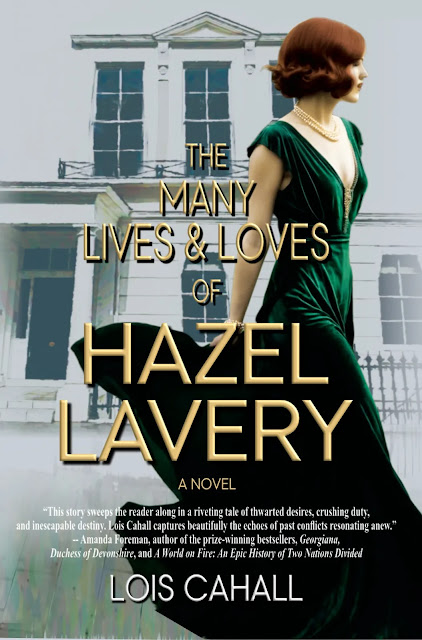Wednesday, 19 February 2025
Look who is in the SPOTLIGHT!! The Fires of Gallipoli by Barney Campbell
Tuesday, 18 February 2025
Look who is in the SPOTLIGHT!!! The Many Lives & Loves of Hazel Lavery by Lois Cahall
By Lois Cahall
Lois Cahall began her writing career as a columnist for Cape Cod newspapers and local periodicals, including Cape Cod Life. She spent a decade writing for national magazines (Conde Nast/Hearst). Her articles have been published in Cosmo Girl, Seventeen, SELF, Marie Claire, Redbook, Ladies Home Journal, Reader’s Digest, Men’s Journal, and Bon Appetit. In the UK she wrote for RED, GQ, Psychologies, and for The Times. In addition, Lois wrote profiles for The Palm Beach Post.
Lois’s first novel, Plan C: Just in Case, was a #1 bestseller in the UK, where it remained in the top three fiction for the year before selling into foreign translation markets. In July of 2014, her novel hit #1 on the Nook “Daily Deal” in America. Her second novel, Court of the Myrtles, was hailed as “Tuesdays with Morrie on estrogen” by Ladies Home Journal. Her latest novel, The Many Lives of Hazel Lavery, is a work of bio-fiction (January 2025)
Lois is the former Creative Director of Development for JPE/James (Jim) Patterson Entertainment. She credits her friend, Jim, the world’s most successful bestselling author, with teaching her the importance of children’s love of reading. As a result, she founded the Palm Beach Book Festival in 2015, an annual event bringing in NYT bestselling and celebrity authors. The event is for book lovers, nurturing the written word for the children and adults of southern Florida.
In 2024 Lois also founded The Cape Cod Book Festival, an annual autumn event that promises to be a new cultural footprint in Massachusetts. It will be for locals and ‘washashores’ alike – a magical place where charitably minded readers can rub elbows with great writers and thinkers.
Lois divides her life between New York and Cape Cod, although her spiritual home is London. But most importantly, Lois can do the Hula Hoop for an hour non-stop and clear a Thanksgiving table in just under ten minutes.
Thursday, 6 February 2025
Look who is in the SPOTLIGHT!!! Lalji’s Nairobi by Nitin Nanji
Book Review: Circus Bim Bom: A Cold War Adventure By Cliff Lovette
Circus Bim Bom: A Cold War Adventure By Cliff Lovette Publication Date: 1st March 2026 Publisher: Bim Bom Books Print Length: 478 Pages Ge...

-
Downriver By Jennifer M. Lane Publication Date: May 28, 2024. Publisher: Pen & Key Publishing. Pages: 344. Genre: Historical A sulfur...
-
Covered in Flour By Charles Presti Publication Date: October 10th, 2023. Publisher: Charles Presti. Page Length: 220. Genre: Historical Fi...
-
I was lucky enough to be offered a review copy of all three books in this series. I have chosen to review "By Love Divided" as I a...





















